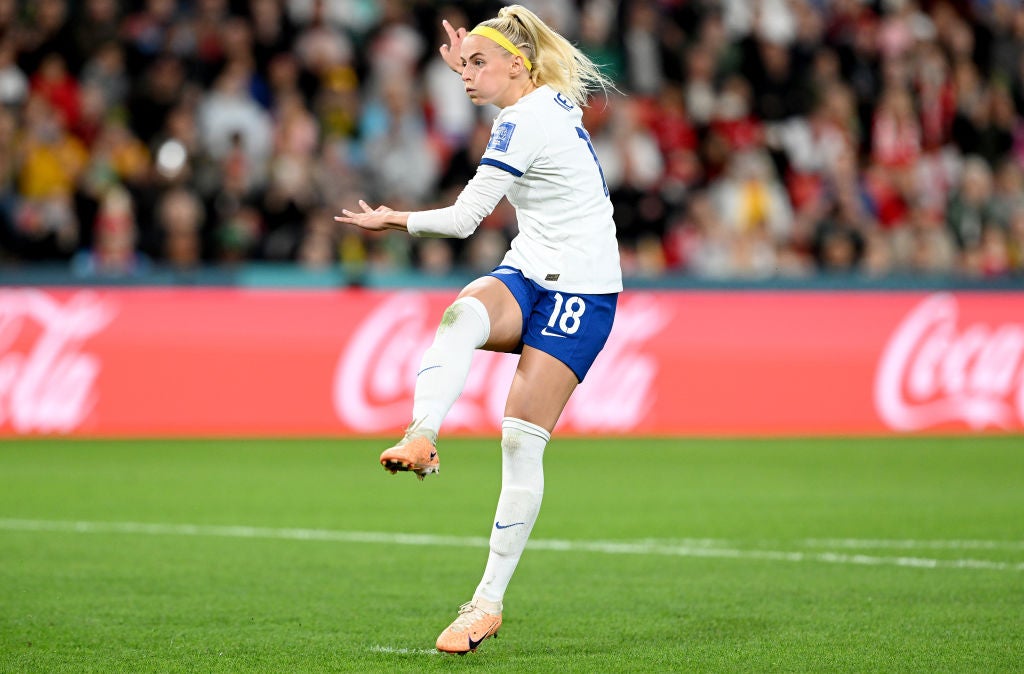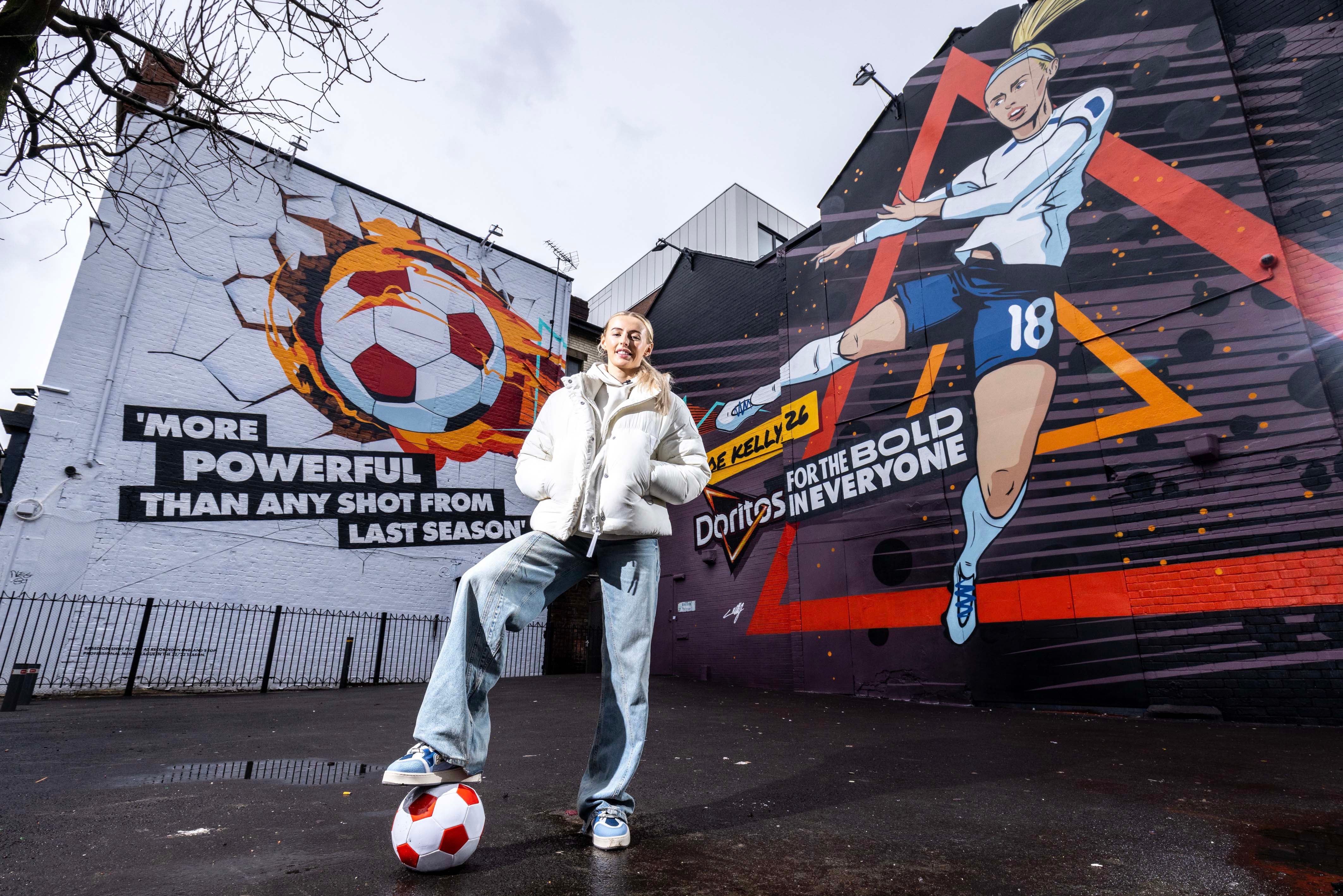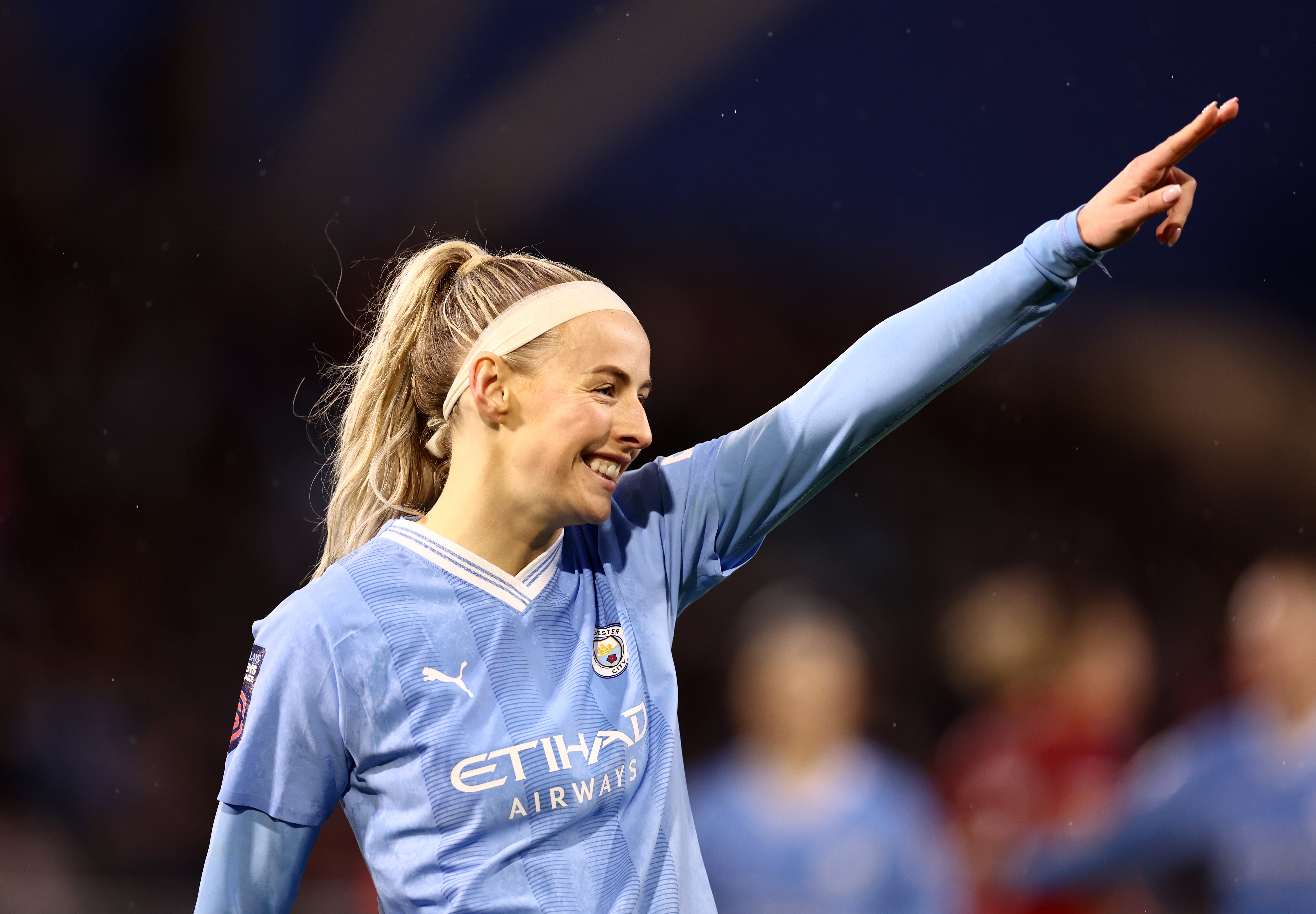Chloe Kelly ready for WSL title decider – but one goal still remains
Exclusive interview: The Lionesses and Man City striker became a household name after her Euro 2022-winning goal, but is keen to ensure the women’s game as a whole continues to get the attention it deserves

Your support helps us to tell the story
This election is still a dead heat, according to most polls. In a fight with such wafer-thin margins, we need reporters on the ground talking to the people Trump and Harris are courting. Your support allows us to keep sending journalists to the story.
The Independent is trusted by 27 million Americans from across the entire political spectrum every month. Unlike many other quality news outlets, we choose not to lock you out of our reporting and analysis with paywalls. But quality journalism must still be paid for.
Help us keep bring these critical stories to light. Your support makes all the difference.
The tale of women’s football’s progression has been told many times before. Decades of hardship, a league beginning to blossom, milestones reached, then an explosion. Then another, and another. It can’t help at times, but verge on the surreal.
“It just feels like yesterday that I was playing at Southport in front of not very many fans,” recalls Chloe Kelly. That time was only four years ago.
Writers spend an age trying to conjure up the correct metaphors; the task is easier when Kelly is the subject of the interview. Her story is a perfect personification of the game’s development. Her career in the Women’s Super League blossomed at Everton, first on loan, then making a permanent switch to Merseyside from 2018 to 2020. Even with the impact of the Lionesses’ semi-final finish at the 2019 World Cup and the professionalisation of the top flight, it is still markedly different nowadays.
Kelly, now, is a household name. Her pivotal moment – the one that adorned the front pages and will stay in the English consciousness for years to come – came as she delivered the winning goal for her country at Wembley in the Euro 2022 final, but she’s continued to grow from strength to strength.
In the summer, she netted the winning penalty as England beat Nigeria at the World Cup.
Her strike was more powerful than any by a male or female player in the top flight of English football in the 2022-23 season and her effort has been rewarded.


As part of a Doritos campaign, a mural has been unveiled in Manchester celebrating Kelly’s strike. “To see myself up there is a great achievement,” she tells The Independent.
While it is easy to become transfixed by the game’s improvements, there is still far more room to grow.
She says: “It’s great to see how far the game has come; I think it’s very exciting to see where the game can go too.
“I think this is only the beginning of the women’s game. Now we’re changing mindsets to ‘it’s just football’. I think it’s great to see the achievements that are being celebrated now for women in sport.”
In England, men’s stadia are consistently being used to host WSL games – something first popularised by the ‘Women’s Football Weekend’ campaign launched in the wake of the Lionesses’ 2019 World Cup efforts, but which has gradually grown from a one-off to a regular occurrence.
In December, Arsenal – who often use the Emirates alongside the women’s team’s usual home of Meadow Park which is shared with National League side Boreham Wood – once again broke the division’s attendance record.
“I think the games in the bigger stadiums have been massive,” adds the Manchester City and England forward. “We’re playing our derby at the Etihad against Manchester United which is really exciting, we played at Old Trafford in the away fixture. I think what Arsenal have done is great to see, they’re playing many games there this season and the attendances are through the roof and they keep getting better.
“That’s where the women’s game needs to be because people do want to come and see it.
“We’ve changed a lot of agendas from ‘no one cares’ to ‘a lot of people do care actually’. I think that’s due to the performances on the pitch, and it’s very exciting to watch.”

Excitement has been a key theme of this season’s Women’s Super League and this weekend presents one of the biggest matches yet.
Chelsea, under manager Emma Hayes, have become dominant, yet they currently sit just three points ahead of City in the league, and the two face each other for the second time this season on Friday evening at 7.15pm.
Hayes’ side has won the past four league titles, yet could this be the season that City finally realise their oft-stated ambitions of winning a first league title since 2016? If they are to do so, then Friday’s game is crucial.
“Playing Chelsea on Friday is another big step in that title race,” Kelly says. “The home fixture was a crazy fixture, but we’re all really excited for that game. These challenges are incredible, as an athlete you always want to win and I’m a very bad loser!”
Yet Kelly is quick to add that this isn’t City’s only opportunity, with eight more games remaining after Friday. “I think that game won’t define the season, there’s still a lot of football to play, so we can’t get too carried away either way the result goes,” she says.
We are poised for a potentially tight race for the title, but that is just one part of a bigger picture. Waning are the days of the dominance of the traditional ‘big three’ of Arsenal, City and Chelsea – it was only recently that Arsenal lost to West Ham in the league.
On-the-pitch matters are in a good place, but what should the priorities be away from it to develop the game’s strength?
“Everyone is very quick to speak about equal pay, but I think first and foremost we need equal facilities,” Kelly says.

Only 17 per cent of those polled for the campaign believed that Kelly’s record was set by a woman, and 23 per cent believed it was important for further steps to be taken to better celebrate the achievements of female athletes.
As such, accompanying the growth in competitiveness and professionalism must also be more chances to insert the game into the national consciousness, according to Kelly.
When asked to define what she believes the most important ‘next step’ to be, her response is simple: “I think being able to see as many games as possible, to see players’ faces as much as you can – whether that be on an advert, the mural.
“I think it’s really important to see players and believe that you can achieve those great things.”
Join our commenting forum
Join thought-provoking conversations, follow other Independent readers and see their replies
Comments